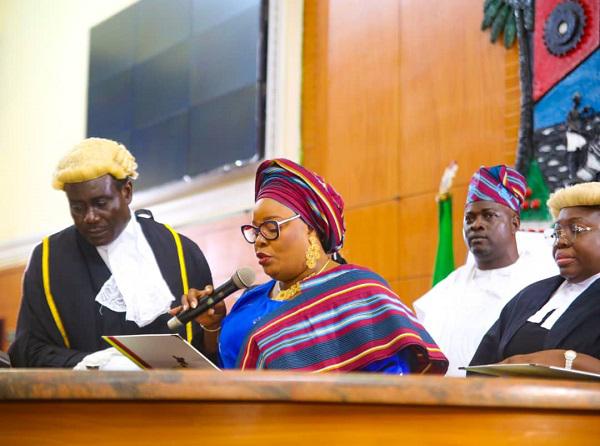The Lagos Civil Society Participation for Development (LCSPD) has issued a compelling call for greater transparency and public engagement in the budgetary processes of the Lagos State House of Assembly. Specifically, the organization has urged the newly appointed Speaker, Mojisola Meranda, to prioritize citizen involvement by instituting public hearings for the state’s annual budget. This appeal underscores a growing movement within Lagos State demanding enhanced accountability and participatory governance. The LCSPD argues that open budgetary processes are crucial for fostering trust, ensuring responsible resource allocation, and mitigating corruption.
The crux of the LCSPD’s argument centers on the importance of public scrutiny in the appropriation process. They contend that public hearings on the annual budget would provide a platform for citizens to voice their opinions, offer insights, and contribute to shaping fiscal policies that directly impact their lives. Historically, Lagos State has held public hearings for various laws, but the budget, arguably the most significant piece of legislation, has been conspicuously excluded from this process. The LCSPD emphasizes that including the budget within the scope of public hearings would distinguish Speaker Meranda’s leadership and signal a renewed commitment to transparency. By opening the budgetary process to public scrutiny, the Assembly could demonstrate its responsiveness to the electorate and cultivate a more inclusive and participatory form of governance.
Beyond budget hearings, the LCSPD has advocated for broader transparency measures encompassing procurement processes, contracts, and international agreements. They have also called for the disclosure of budget allocations for the House of Assembly and the Legislative House Service Commission. These measures, the organization argues, would significantly enhance public trust by shedding light on government spending and minimizing opportunities for corruption. By proactively addressing potential areas of concern, the Assembly could demonstrate its dedication to ethical conduct and fiscal responsibility, thereby strengthening public confidence in its operations.
Furthermore, the LCSPD has proposed the reactivation of the civil society legislative desk, a mechanism designed to facilitate communication and collaboration between lawmakers and advocacy groups. This desk would serve as a vital conduit for conveying citizen concerns, sharing policy expertise, and fostering constructive dialogue between the Assembly and civil society organizations. By creating a formalized channel for engagement, the Assembly could tap into the diverse perspectives and expertise within civil society, leading to more informed and effective policymaking.
The LCSPD acknowledges that implementing these reforms might encounter resistance. However, they emphasize that prioritizing the public interest will ultimately define and distinguish Speaker Meranda’s tenure. By embracing transparency and accountability, the Speaker has an opportunity to establish a legacy of responsive and responsible governance, reinforcing the Assembly’s role as a true representative of the people. This commitment to public engagement would not only enhance the integrity of the legislative process but also strengthen the democratic foundations of Lagos State.
In essence, the LCSPD’s call for greater transparency and citizen participation in budgetary processes represents a critical step towards strengthening democratic governance in Lagos State. By opening the budget to public scrutiny, disclosing financial information, and fostering collaboration with civil society, the Assembly can create a more accountable and responsive government, one that truly reflects the will and serves the best interests of the people. This call for transparency reflects a broader trend across Nigeria, and indeed globally, demanding increased government accountability and citizen participation in shaping public policy.














